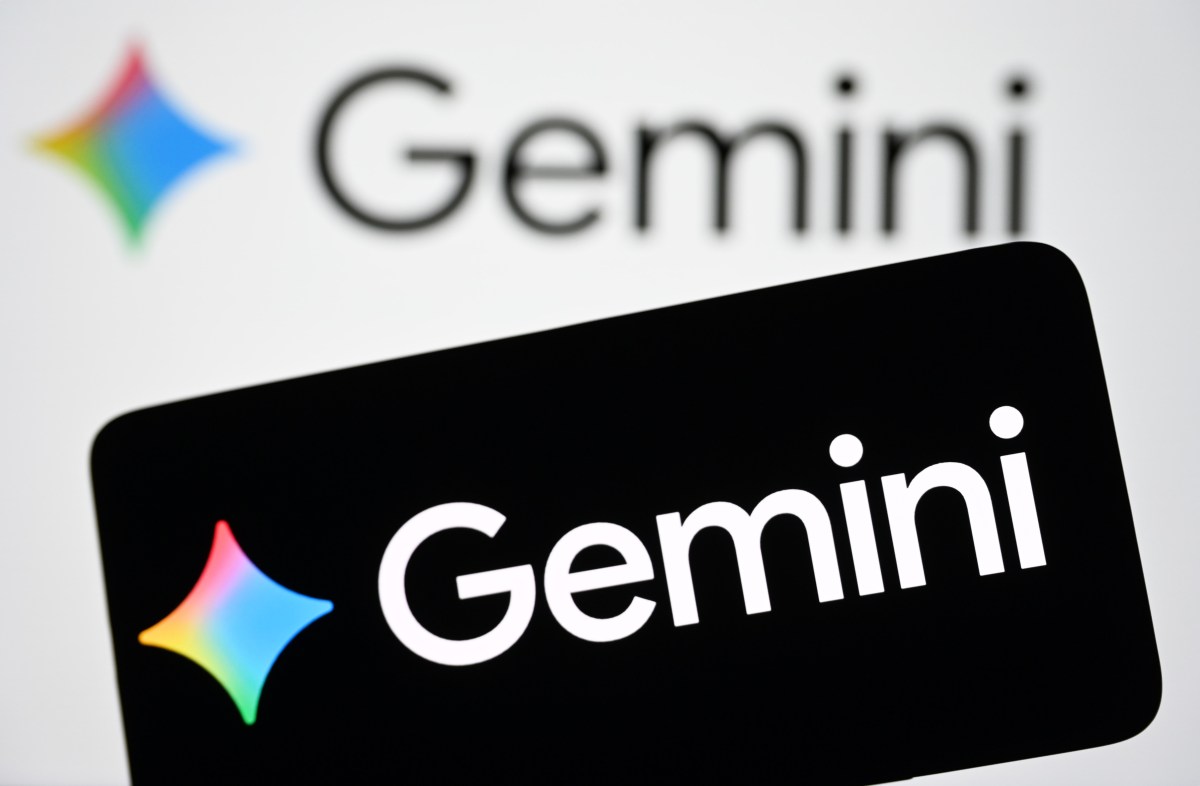Latest
AI
Amazon
Apps
Biotech & Health
Climate
Cloud Computing
Commerce
Crypto
Enterprise
EVs
Fintech
Fundraising
Gadgets
Gaming
Google
Government & Policy
Hardware
Instagram
Layoffs
Media & Entertainment
Meta
Microsoft
Privacy
Robotics
Security
Social
Space
Startups
TikTok
Transportation
Venture
Staff
Events
Startup Battlefield
StrictlyVC
Newsletters
Podcasts
Videos
Partner Content
TechCrunch Brand Studio
Crunchboard
Contact Us
General Motors will add a conversational AI assistant powered by Google Gemini to its cars, trucks, and SUVs starting next year, the U.S. automaker said Wednesday during an event in New York City.
The Google Gemini rollout is one of several tech-centric announcements made at the automaker’s GM Forward event, and it will be one of the first to get into consumers’ hands. Others, including an overhaul of its electrical architecture and computing platform and an automated driving feature that allows drivers to keep their hands off the wheel and eyes off the road, aren’t coming to GM brands until 2028.
GM is the latest automaker to lean in to generative AI-based assistants that promise to respond to driver requests in a more natural-sounding way. Stellantis is collaborating with French AI firm Mistral, Mercedes is integrating ChatGPT, and Tesla has brought xAI’s Grok to its vehicles.
GM’s integration with Gemini is the next logical step for the automaker. Vehicles produced by GM brands Buick, Chevrolet, Cadillac, and GMC already have “Google built-in,” an operating system that gives drivers access to Google Assistant, Google Maps, and other apps directly from the car’s infotainment screen. In 2023, Google began using Google Cloud’s Dialogflow chatbot to handle non-emergency OnStar features, including common driver queries like routing and navigation assistance.
GM’s Gemini-powered AI assistant will have similar levels of capability — it’ll just perform better, according to Dave Richardson, senior vice president of software and services.
“One of the challenges with current voice assistants is that, if you’ve used them, you’ve probably also been frustrated by them because they’re trained on certain code words or they don’t understand accents very well or if you don’t say it quite right, you don’t get the right response,” Richardson told TechCrunch. “What’s great about large language models is they don’t seem to be affected by that. They have context about previous conversations that they can bring up. They’re flexible in how you speak to them … so overall you’re getting a better, more natural experience.”
That might make drafting and sending messages, planning routes with additional stops (like a charging station or a favorite coffee shop), or even prepping for a meeting on the go a more pain-free experience. The assistant will also have access to the web to be able to answer certain questions like, “What’s the history of this bridge I’m driving over?”
The Gemini assistant will be made available via the Play Store as an over-the-air upgrade to OnStar-equipped vehicles, model year 2015 and above.
GM’s new voice assistant is a step toward the automaker’s goal of developing its own custom-built AI that connects to your vehicle’s systems through OnStar, GM’s in-car concierge. The way GM executives described the technology at the NYC event, it seems like a mix of a health wearable and an AI pendant, but for your car.
The assistant promises to access vehicle data to provide maintenance alerts and route suggestions, explain car features like one-pedal driving, and turn your heat or air conditioning on before you enter the vehicle.
“The idea here is you take [an existing] large language model, and you train it and refine it on a specific domain,” Richardson said. “We’ll take a base model and train it on the vehicle’s specifications, distill that down, and have that running on the vehicle.”
While GM has a close relationship with Google and will already be implementing Gemini into certain vehicles, Richardson said GM plans to test several foundational models from other AI firms, which could include OpenAI, Anthropic, and others.
Richardson said drivers will be able to control what information the assistant can access and use, and it can learn from your habits to offer personalized recommendations. GM’s emphasis on user controls is notable given the company’s recent controversy over selling customer driving and geolocation data to insurance brokers.
Richardson said any data GM gets from drivers goes directly toward improving the product and won’t be sold to bring in additional revenue for the automaker. Over the last nearly two years, GM has brought on a new data team — including Christina Montgomery, who spent 30 years as IBM’s chief privacy and trust officer — to put standard processes and data governance technology in place.
“Everything that we’re going to do is going to be driven by customer consent, so you can always opt in or opt out,” he said. “Our viewpoint is that data and privacy has to be built into everything that we do.”
This article has been updated with comments from Dave Richardson.
Topics
Rebecca Bellan is a senior reporter at TechCrunch where she covers the business, policy, and emerging trends shaping artificial intelligence. Her work has also appeared in Forbes, Bloomberg, The Atlantic, The Daily Beast, and other publications.
You can contact or verify outreach from Rebecca by emailing rebecca.bellan@techcrunch.com or via encrypted message at rebeccabellan.491 on Signal.
Bring a +1 and save 60%
Have a +1 you’d like to bring to Disrupt? Bring them along and save 60% on their pass. Or get up to 30% off on group passes.
Join 10,000 founders, investors, and tech leaders — and save when you come together to the tech epicenter of the year.
Two days after OpenAI’s Atlas, Microsoft relaunches a nearly identical AI browser
OpenAI launches an AI-powered browser: ChatGPT Atlas
Meta AI’s app downloads and daily users spiked after launch of ‘Vibes’ AI video feed
Trump DOE confirms it’s canceling over $700M in manufacturing grants
Kohler unveils a camera for your toilet
WhatsApp changes its terms to bar general-purpose chatbots from its platform
© 2025 TechCrunch Media LLC.











